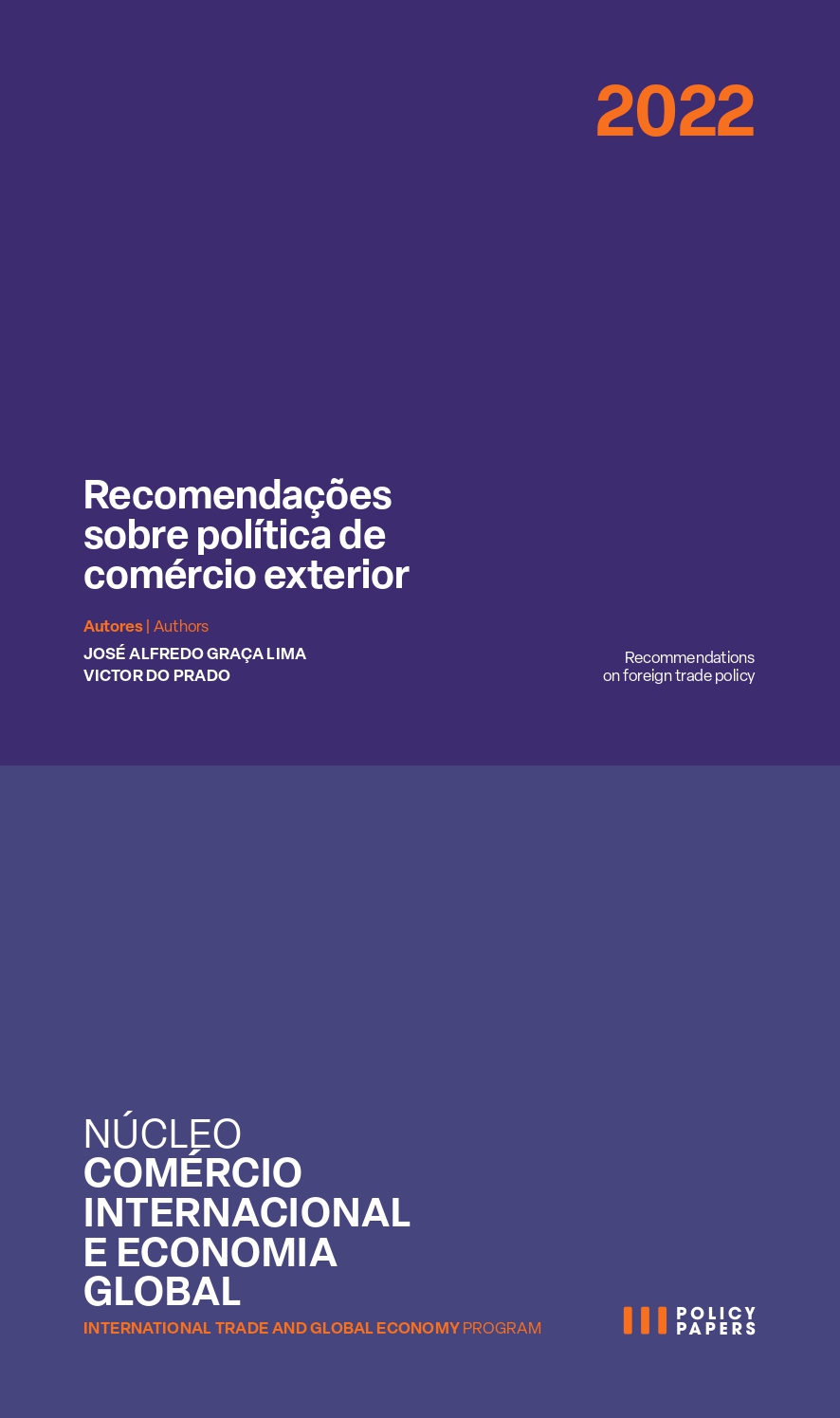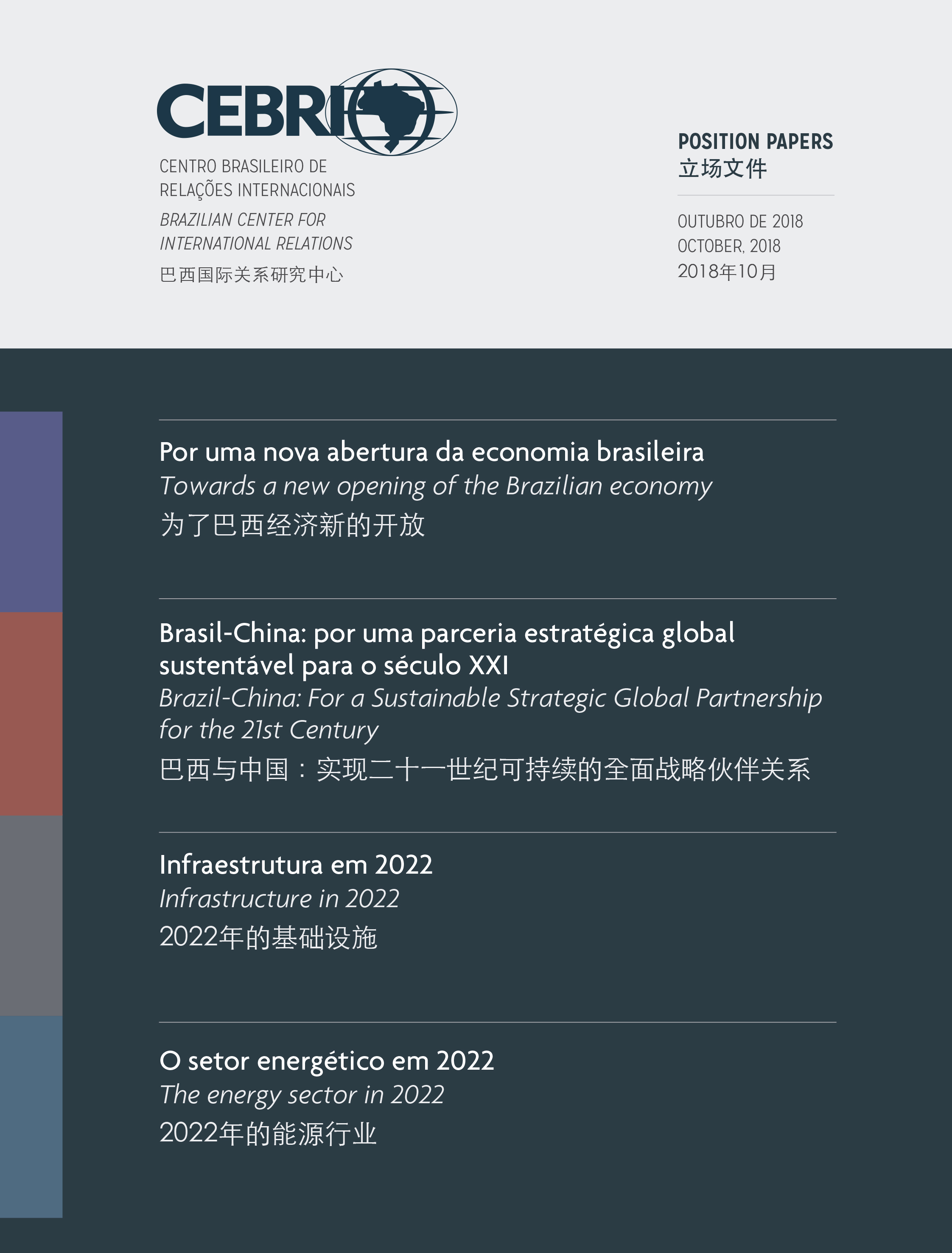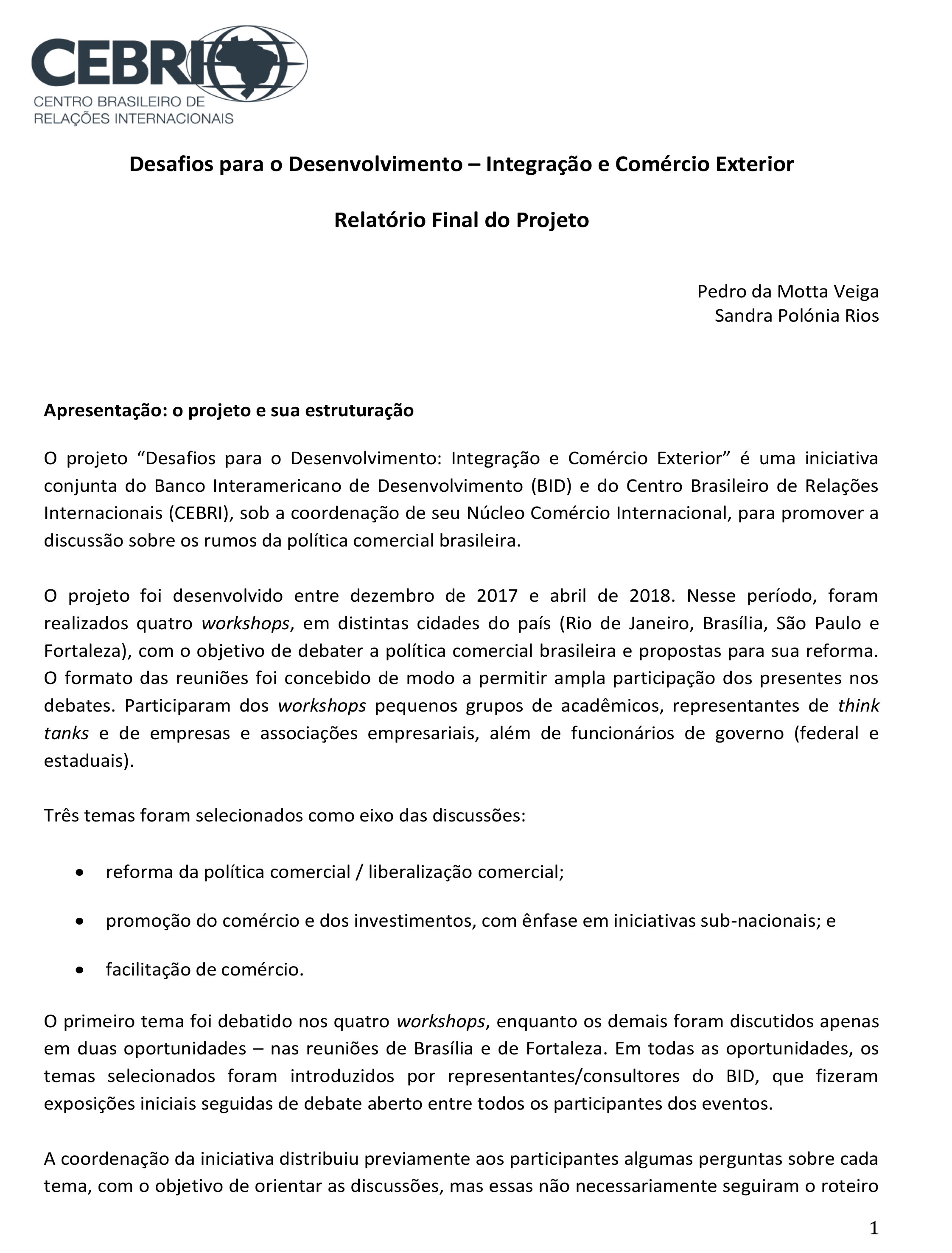On March 15th, CEBRI organized the lecture "Life After The Trade War", given by Arthur R. Kroeber, who discussed the possible outcomes that the trade dispute between the United States and China may have on the economy and politics of both countries. The debate was chaired by the President of CEBRI's Board of Trustees, José Pio Borges, and took place in partnership with Casa das Garças, which was also the venue of the event.
According to the lecture, an agreement in the first half of this year is expected, given the political weight of a positive negotiation for both the Donald Trump and Xi Jinping governments in reaching an understanding. However, there are indications that an agreement would not entirely meet the demands on either side. This is especially the case because the clash also involves issues related to the technological race between the two countries, alongside access to the Chinese market.
In this context, says Kroeber, it is essential that the other countries maintain good relations both with the US and with China without opting for any preferences, as both are partners in topics like business, investments and technological exchange. The disputes involving Washington and Beijing are expected to be long-lasting, according to Kroeber. The details of the discussion are part of this edition of Breaking News.
On March 15th, CEBRI organized the lecture "Life After The Trade War", given by Arthur R. Kroeber, who discussed the possible outcomes that the trade dispute between the United States and China may have on the economy and politics of both countries. The debate was chaired by the President of CEBRI's Board of Trustees, José Pio Borges, and took place in partnership with Casa das Garças, which was also the venue of the event.
According to the lecture, an agreement in the first half of this year is expected, given the political weight of a positive negotiation for both the Donald Trump and Xi Jinping governments in reaching an understanding. However, there are indications that an agreement would not entirely meet the demands on either side. This is especially the case because the clash also involves issues related to the technological race between the two countries, alongside access to the Chinese market.
In this context, says Kroeber, it is essential that the other countries maintain good relations both with the US and with China without opting for any preferences, as both are partners in topics like business, investments and technological exchange. The disputes involving Washington and Beijing are expected to be long-lasting, according to Kroeber. The details of the discussion are part of this edition of Breaking News.



.jpg)



